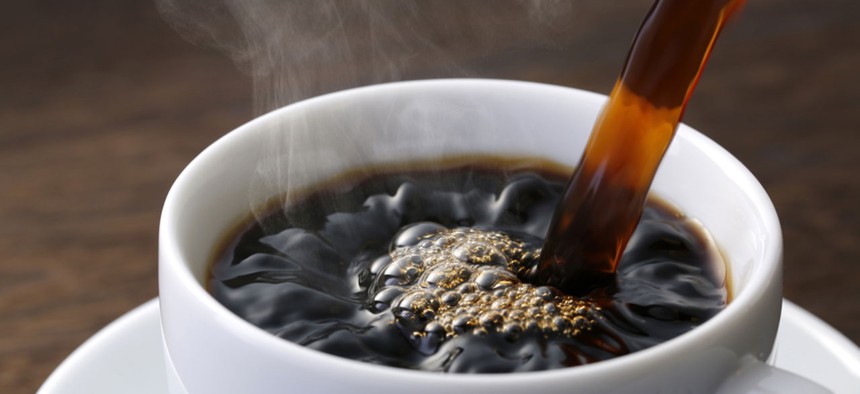
Shutterstock.com
To Bring Out The Best In Your Next Meeting, Serve Coffee
Serving coffee at the next big meeting could make everybody involved feel a whole lot better. But is it the caffeine or the camaraderie
Serving coffee at a meeting can focus group discussion, boost involvement, and leave members feeling better about their own and others’ participation, according to new research.
Decades of coffee research have explored its effects on the individual, but this study is the first on the effects on performance in group tasks.
“If you look at where coffee’s being consumed, a significant amount happens in group settings,” says Rao Unnava, dean of the management school at the University of California, Davis, who wrote the study with Vasu Unnava, an adjunct assistant professor and his wife. The study appears in the Journal of Psychopharmacology.
The researchers conducted two experiments, each involving about 70 undergraduates at a large Midwestern university.
In the first experiment, small groups had coffee together about 30 minutes before discussing an article about the Occupy movement and making recommendations about the topic’s inclusion in a competition for discussion topics in graduate school. Other groups had their coffee after the discussion.
Participants who drank coffee before the discussion more positively rated their groups’ and their own performance.
One question about the act of drinking coffee nagged the researchers. “Is it the caffeine in the coffee or the simple act of consuming coffee together than made people feel positive?” Vasu Unnava wondered.
So in the second experiment, all the participants had a cup of coffee together before the discussions. But some groups got caffeinated coffee, and others got decaffeinated coffee.
In keeping with the results of the first experiment, the groups who had the caffeinated coffee rated their own participation and their attitude toward group members more positively than those who had the decaffeinated coffee. They also expressed more of a willingness to work with the group again and a higher level of alertness.
Additionally, coding of audio recordings from the discussions showed that the groups that had caffeinated coffee generated more statements relevant to the topic.
Rather than proclaiming caffeine as the ultimate catalyst for better group work, the researchers pointed to the increased level of alertness as being the mechanism for the positive effects.
Amit Singh, a graduate student at Ohio State University, also contributed to the study.
Source: UC Davis
This article was originally published in Futurity. Edits have been made to this republication. It has been republished under the Attribution 4.0 International license.






